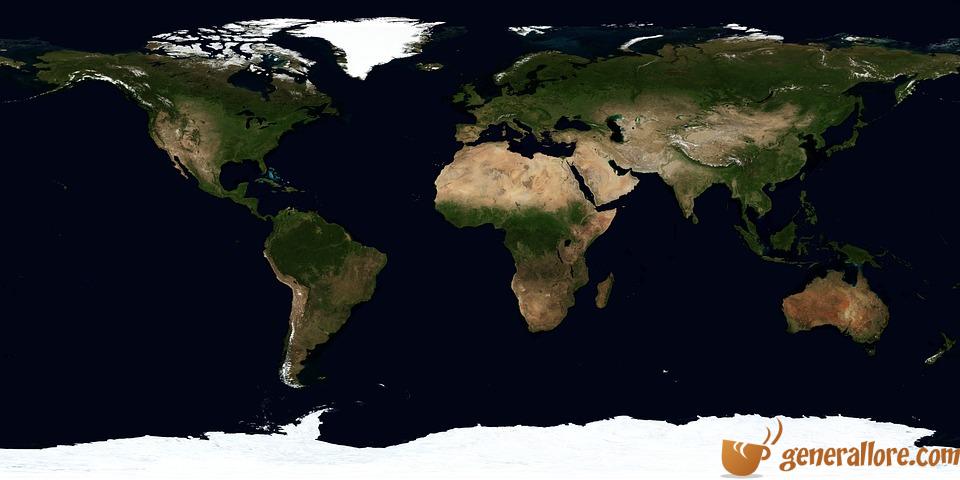The Influence of Volcanic Activity on Earth’s Climate
Introduction
Volcanic activity has been a powerful force shaping the Earth’s climate for millions of years. When a volcano erupts, it releases a variety of gases and particles into the atmosphere, which can have both short-term and long-term effects on the climate. The influence of volcanic activity on the Earth’s climate is a complex and multifaceted topic that continues to be studied by scientists around the world.
The Short-Term Effects of Volcanic Activity
Impact on Weather Patterns
Volcanic eruptions can lead to short-term changes in weather patterns, including the potential for increased precipitation and changes in temperature.
Formation of Volcanic Clouds
The release of sulfur dioxide and other gases during an eruption can lead to the formation of volcanic clouds, which can affect the Earth’s climate by reflecting sunlight and cooling the surface.
The Long-Term Effects of Volcanic Activity
Impact on Global Temperature
Volcanic activity has the potential to influence global temperatures over long periods of time, as gases and particles released during eruptions can impact the Earth’s energy balance.
Effect on Ocean Circulation
Volcanic activity can also impact ocean circulation patterns, which in turn can influence the distribution of heat around the globe and have long-term effects on the climate.
How Volcanic Activity is Studied
Monitoring of Active Volcanoes
Scientists use a variety of tools and techniques to monitor active volcanoes and study their influence on the Earth’s climate, including satellite observations and ground-based monitoring stations.
Analysis of Historical Eruptions
By studying the geological record, scientists can gain valuable insights into the influence of past volcanic activity on the Earth’s climate, helping to improve our understanding of the complex interactions between volcanoes and the climate.
The Role of Volcanic Activity in Climate Change
Contributing to Natural Climate Variability
Volcanic activity is one of the natural factors that can contribute to climate variability, influencing both short-term weather patterns and long-term climate trends.
Interaction with Human Activities
While volcanic activity has played a significant role in shaping the Earth’s climate over geological time scales, its influence needs to be considered alongside the impact of human activities on the climate.
Conclusion
Volcanic activity has long been recognized as a major force shaping the Earth’s climate. The gases and particles released during eruptions can have both short-term and long-term effects on the climate, influencing weather patterns, global temperatures, and ocean circulation. By studying the influence of volcanic activity on the Earth’s climate, scientists can gain valuable insights into the complex interactions that drive climate variability and change.
FAQs about the Influence of Volcanic Activity on Earth’s Climate
1. How do volcanoes affect the climate?
Volcanoes can affect the climate by releasing gases and particles into the atmosphere, which can impact weather patterns and global temperatures.
2. Can volcanic eruptions lead to cooling of the Earth’s surface?
Yes, the release of sulfur dioxide and other gases during an eruption can lead to the formation of volcanic clouds, which can reflect sunlight and cool the surface.
3. Are there any long-term effects of volcanic activity on the Earth’s climate?
Yes, volcanic activity can influence global temperatures over long periods of time and impact ocean circulation patterns, contributing to climate variability.
4. How do scientists study the influence of volcanic activity on the Earth’s climate?
Scientists use a variety of tools and techniques to monitor active volcanoes, analyze historical eruptions, and study the influence of volcanic activity on the Earth’s climate.
5. Is volcanic activity considered a natural factor in climate change?
Yes, volcanic activity is one of the natural factors that can contribute to climate variability and change, alongside human activities.
6. Can the influence of volcanic activity on the Earth’s climate be predicted?
Predicting the influence of volcanic activity on the Earth’s climate is a complex task, as it involves understanding the interactions between volcanoes and the climate system.
7. Are there any known instances of volcanic activity significantly impacting the Earth’s climate?
Yes, historical eruptions such as the 1815 eruption of Mount Tambora in Indonesia are known to have had significant impacts on the Earth’s climate, leading to a year without a summer in some regions.
8. How does volcanic activity compare to human activities in influencing the climate?
While volcanic activity has played a significant role in shaping the Earth’s climate over geological time scales, its influence needs to be considered alongside the impact of human activities on the climate.
9. Are there ongoing research efforts to better understand the influence of volcanic activity on the Earth’s climate?
Yes, scientists around the world are actively studying the influence of volcanic activity on the Earth’s climate, using advanced tools and techniques to improve our understanding of this complex topic.
10. What are the potential implications of better understanding the influence of volcanic activity on the Earth’s climate?
By gaining a better understanding of the influence of volcanic activity on the Earth’s climate, scientists can improve our ability to predict and respond to natural climate variability and change, helping to safeguard the future of our planet.




